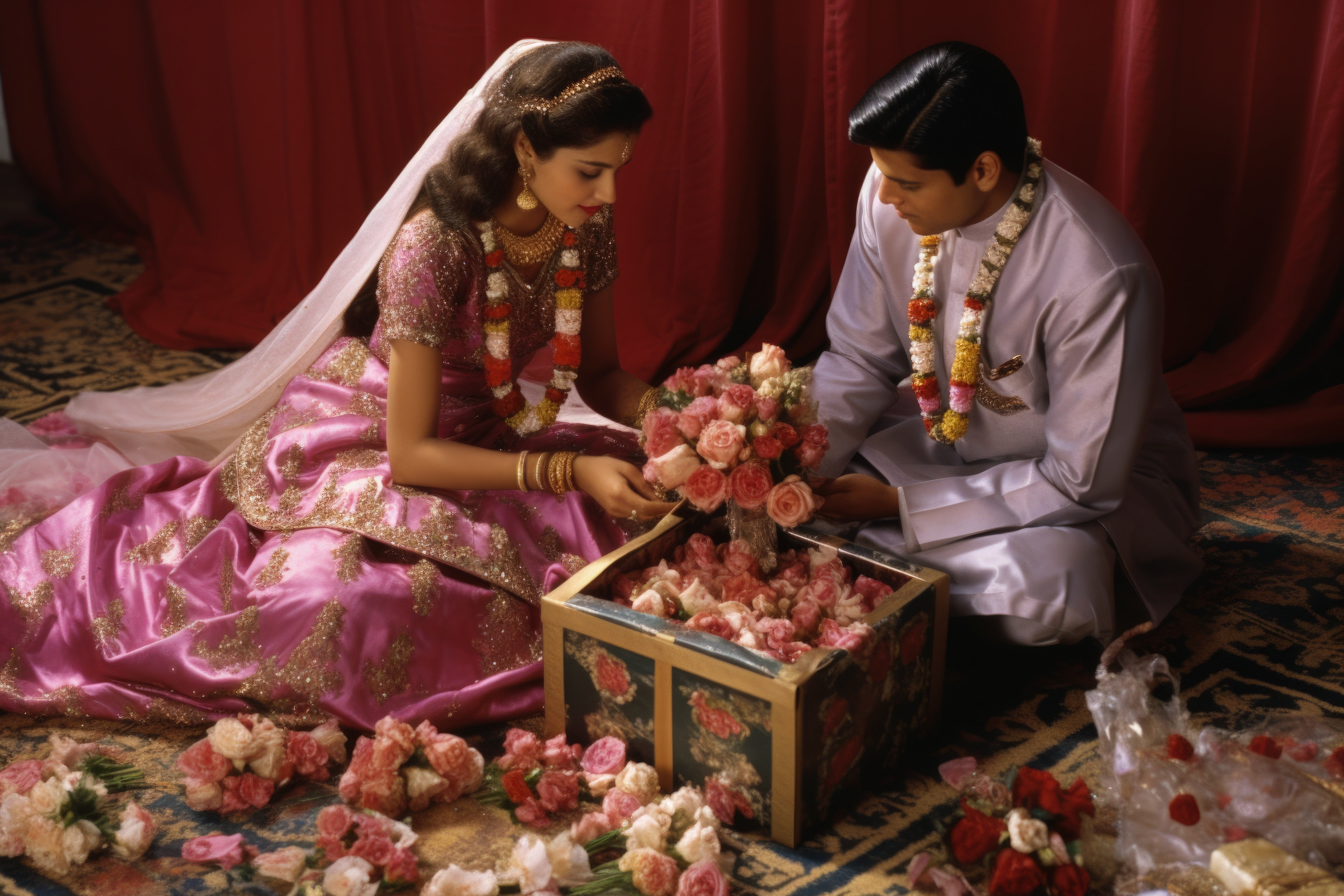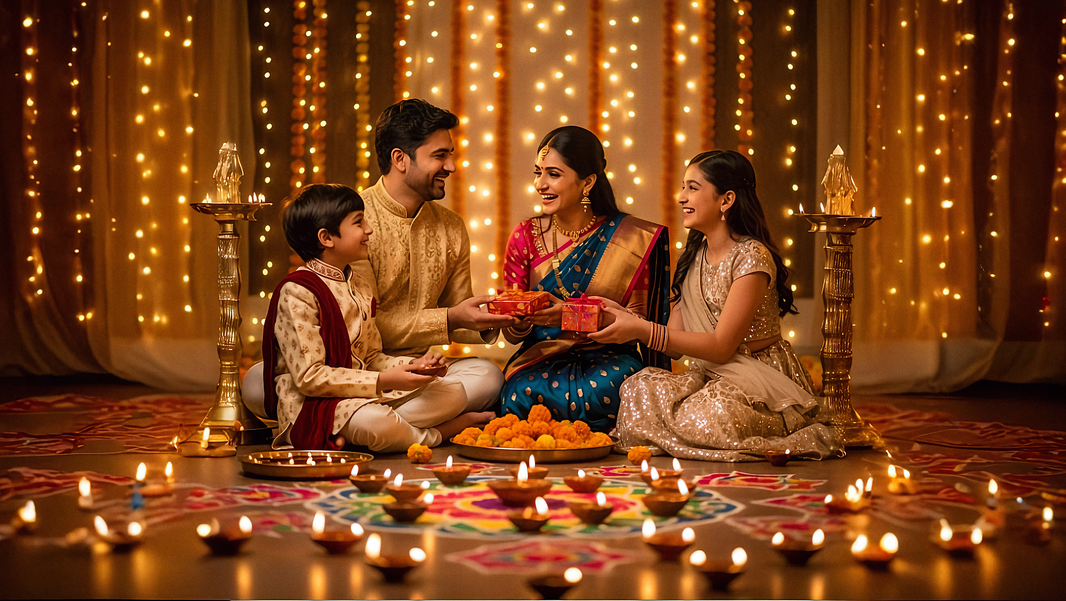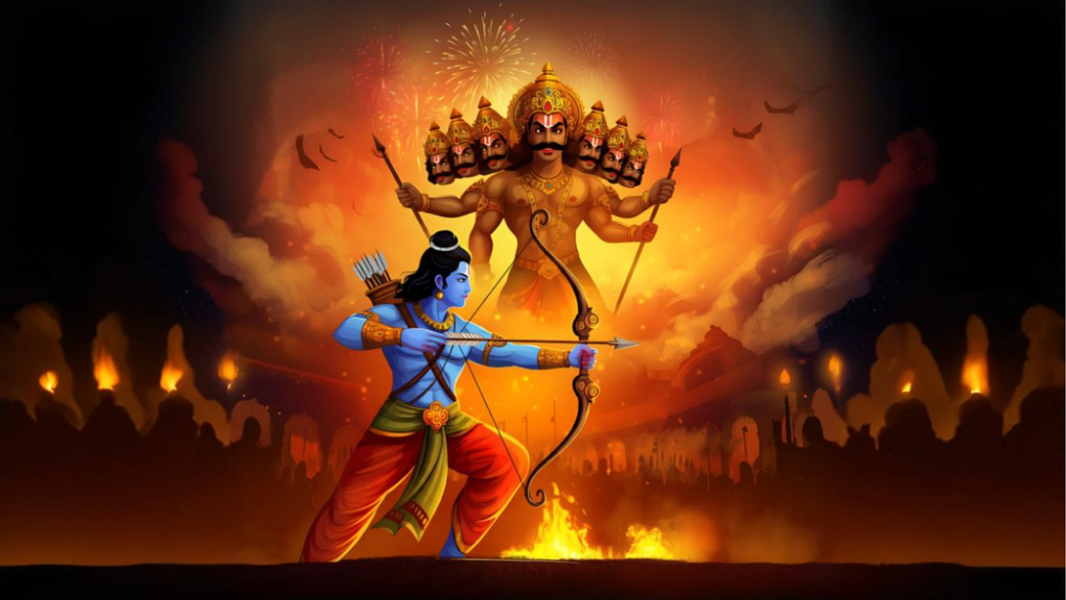It’s late evening, and Shreya and Amit sit together on the floor of their new apartment, surrounded by boxes and half-assembled furniture. They’ve just gotten engaged, and the world feels bright and hopeful—like they’re on the threshold of a new story. Amid giggles and gentle teasing, their conversation turns serious. They need to pick a wedding date, and the calendar they’re staring at offers too many choices. Should they pick a date that’s convenient for out-of-town guests? A long weekend to ensure everyone can attend? Or a date that just “feels right,” even if it’s midweek?
In today’s world, wedding planning often focuses on logistics—venue availability, weather forecasts, and work schedules. But in the tapestry of India’s traditions, there’s another thread worth weaving in: the practice of choosing an auspicious muhurta based on Vedic astrology (also known as ancient Indian astrology). Far from an outdated custom, this approach can add depth and intentionality to one of life’s most meaningful milestones.
Instead of treating your wedding date like any other event, why not see it as a unique seed you’ll plant—a moment in time aligned with cosmic rhythms that support a lasting union?
The Cosmic Lens on Marriage
In Vedic traditions, a wedding isn’t just a contract or a social gathering. It’s a sacred bond, a coming together of two souls destined to share life’s joys and challenges. Your janam kundli (birth chart) holds clues to your personality, desires, and karmic lessons. By comparing your chart with your partner’s, an astrologer can reveal how your energies blend.
Choosing a wedding date takes this cosmic insight a step further. It’s about finding a time when planetary configurations support harmony, trust, and longevity. The idea isn’t to guarantee a perfect marriage—no single date can do that—but to start your journey on a day that resonates with the constructive, benevolent energies of the cosmos.
Why Auspicious Timings Matter
Think of time as having a flavor or mood. Just as a garden thrives if you plant seeds in fertile soil during the right season, a marriage often blooms when begun under auspicious influences. Certain planetary positions encourage understanding, while others foster stability or passion. Aligning with these patterns is like inviting the universe to bless your union.
Historically, farmers planted and harvested according to lunar cycles, and sailors navigated by the stars. In a similar spirit, choosing a wedding date guided by Vedic astrology means acknowledging that you’re part of something larger—the cosmic dance of planets and nakshatras (lunar mansions). It’s a gentle reminder that your love story is woven into the fabric of the universe.
The Process of Finding an Auspicious Muhurta
So how does one go about this? Typically, you’d consult a reputable astrologer, ideally someone familiar with both your birth charts and your partner’s. They’ll consider factors like:
- Planetary Alignments: Looking at the positions of Venus (Shukra) for love, Jupiter (Guru) for blessings and wisdom, and the Moon (Chandra) for emotional harmony.
- Nakshatras: Each lunar mansion carries unique qualities. The astrologer will select a nakshatra known for supporting stability, commitment, and mutual understanding.
- Avoiding Malefic Periods: Some planetary transits or tithi (lunar days) may be associated with tension or discord. A skilled astrologer helps steer you clear of these turbulent intervals.
After careful calculation, you’ll receive one or more recommended dates. These aren’t just numbers on a calendar; they’re moments chosen for their symbolic resonance and potential to nurture a strong marital foundation.
Balancing Tradition and Practicality
You might wonder: what if the chosen date isn’t convenient? Modern life comes with real-world constraints—venues might be booked, important guests may have conflicts, or you might prefer a particular season. Vedic astrology isn’t about rigid dogma; it’s about harmony and flexibility. Often, astrologers can suggest multiple windows of auspiciousness, giving you options to find a balance between cosmic guidance and everyday logistics.
For example, Shreya and Amit consulted with an astrologer who gave them three potential dates spread across a few months. One was on a Friday, another a Sunday, and another in late spring. They considered their family’s schedules, the ideal climate for an outdoor ceremony, and venue availability. Eventually, they chose a date that felt both astrologically supportive and practically manageable.
A Deeper Layer of Meaning
Integrating an auspicious muhurta into your wedding planning can add depth that no Pinterest board or bridal magazine can replicate. It transforms the process from a checklist into a ritual. Imagine sharing with your guests: “We chose this date not just because it’s convenient, but because it holds cosmic blessings.” That story becomes part of your family’s lore, something to pass on to future generations who might hold your wedding day as a reference point of harmony and love.
This approach also shifts focus inward. Weddings often become about aesthetics and guest lists, but choosing an auspicious date reminds you that this day is the seed of a lifelong commitment. It encourages reflection:
- What qualities do we want to nurture in our marriage?
- How can we align our union with higher principles of respect, understanding, and growth?
Marriage and Karma: A Cosmic Partnership
In Vedic philosophy, marriage isn’t just a social contract; it’s a karmic partnership. Two souls come together to help each other evolve spiritually. The challenges and triumphs you face as a couple are opportunities to learn patience, forgiveness, and empathy. By choosing a time blessed by benevolent planetary energies, you set the stage for a union rooted in mutual upliftment.
This doesn’t mean conflicts won’t arise—every marriage faces storms—but you may find that you navigate them with a sense of cosmic support. Over the years, as you encounter life’s inevitable twists, remembering that you started your journey under a sky that smiled upon your union can be a source of comfort and strength.
Rituals to Enhance the Day’s Energy
Just as choosing a wedding date has symbolic value, so do the rituals you perform on that day. Consider weaving in small gestures inspired by the planetary alignments:
- A Mantra for Blessings: Before the ceremony, the couple might chant or listen to a mantra associated with Jupiter or Venus, invoking blessings for wisdom and love.
- Lighting a Sacred Lamp: Lighting a diya (oil lamp) at an auspicious moment can represent your commitment to nurturing the flame of understanding in your marriage.
- Offering Gratitude to the Moon: If your chosen muhurta aligns with a harmonious lunar phase, you could acknowledge the Moon’s calming influence by placing a bowl of water under the moonlight or simply pausing to breathe under the night sky.
These acts need not be grand. Even a quiet moment of gratitude can be powerful, a subtle way to tune into the day’s cosmic significance.
Embracing the Mystery
Some couples worry that relying on astrology might feel superstitious or old-fashioned. But think of it this way: we turn to weather forecasts to pick an outdoor event date. We consider cultural holidays and meaningful anniversaries. Choosing an auspicious wedding date is similar—it’s a form of guidance that honors intuition, tradition, and the poetic interplay between celestial bodies and human hearts.
Conclusion: Weaving Tradition into Modern Love
In a world where weddings can sometimes feel like performative spectacles, returning to ancient Indian astrology offers grounding. It’s a whisper from the past, suggesting that love flourishes not just by effort and intention, but also by harmonizing with the cosmic dance that has guided countless unions before ours.
As Shreya and Amit finalize their date, they realize they’re not just picking a day—they’re choosing the first chapter of their shared life. The date, recommended by their astrologer, falls on a crisp autumn afternoon. They imagine the sun’s angle, the scent of marigolds, the laughter of friends, and the quiet reassurance that the cosmos stands with them. In that moment, they know their wedding won’t just be a ceremony. It will be a sacred encounter with time, tradition, and the timeless mystery of love itself.







